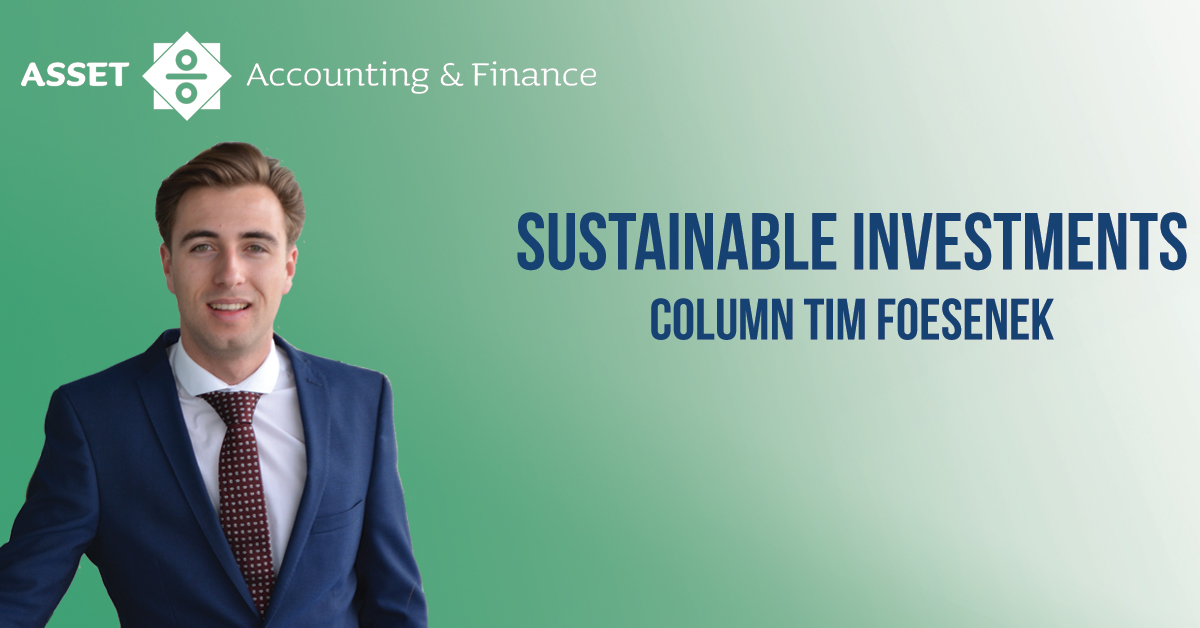Sustainable investing seems to have gained a lot of popularity over the past years. Many investors want their money to be used in a responsible way and institutions are expected to take sustainability into account for a significant part of their portfolio. But what exactly is meant by sustainable investing?
If you search the internet for “sustainable investing”, you will most likely find climate related investments for the most part. There are many funds in the Netherlands that engage in making energy use more efficient and thereby reduce the emission of CO2. Quite a logical consequence of the political attention of the topic lately. The concept of sustainable investing is however more than that. Banks have offered sustainable saving accounts and funds for decades, many of which focus on ethics too. They, for example, refuse to invest in the weapon industry, in child labor or in polluting firms. The return of those responsible investments is generally a bit lower. The idea of sustainable investing thereby seems giving up a part of your profit to guarantee a better future for the entire world.
But is this lower return actually the bill of goodwill, or is it the result of a risk averse investing strategy? Sustainability could also refer to the future stability of your portfolio in the latter scenario. Investing is inherent to the desire to make money, otherwise it would be donating. Moreover, the increased popularity of sustainable investing seems to be largely caused by the fact that opportunities such as green investments became more lucrative.
“The idea of sustainable investing thereby seems giving up a part of your profit to guarantee a better future for the entire world.”
Looking at the example of child labor: the profit margins of a clothes factory with children working is probably higher than those of a fair-trade competitor. In general, this means a higher return, but this comes with a higher risk in my opinion. I estimate that the former firm has a higher business risk because of changing regulations or defamation than the latter. As a result, unsustainable firms involve a higher non-systematic risk. Moreover, sustainable firms are usually more transparent, which causes investor trust. From this perspective, there might even be a difference in beta, rather than in alpha such as sustainable investing often implies.
The expression “impact investing” is used more frequently nowadays. It is the philosophy to really chase a goal with an investment. Look at it as an active variant of sustainable investing. For instance, you could take a position in a polluting firm so that you can use your voting right to make it more ecofriendly. In fact, your portfolio does not have an actual impact by refusing to invest in such a firm, because it is likely that someone else will do so anyway.
I think sustainability is of great importance and I am glad to see that the financial world contributes to a better future. It is hard to determine if this is caused by pure goodwill or by safe investing strategy, but let’s assume it is a combination of both. In any case, it is good to see that it is possible to make money in a fair way.
This article is not purposed to provide arguments or advice, just as food for thought.

















